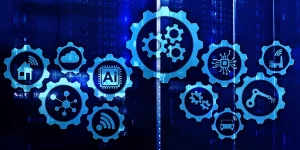In the rapidly evolving landscape of enterprise technology, a new paradigm is emerging that echoes the revolutionary vision Bill Gates once articulated about putting “a computer on every desk and in every home.” Today, Microsoft CoreAI is orchestrating an equally ambitious transformation: turning every business into an AI agent factory. This bold strategic shift represents more than just another technological advancement—it signals a fundamental reimagining of how your organization will operate in the AI-driven future.
As the competitive battleground intensifies with formidable rivals like OpenAI, Google, and Anthropic racing toward similar objectives, Microsoft faces the challenge of executing this transformation while maintaining its enterprise leadership position. The stakes could not be higher, as the company’s ability to deliver on this agent-centric vision may well determine the next wave of computing dominance and reshape how your enterprise builds and deploys artificial intelligence solutions.
The Evolution from Chatbots to Intelligent Agent Ecosystems
Your organization has likely experimented with AI chatbots, perhaps discovering what many enterprises have learned: these initial forays often demonstrate limited return on investment. The challenge lies not in the technology itself but in the fundamental approach to AI implementation. Traditional chatbot deployments treat AI as an add-on feature rather than the foundational element of your business processes.
Microsoft CoreAI recognizes this limitation and is architecting a solution that transcends simple conversational interfaces. The company envisions a future where AI agents function as the primary applications of the AI era, seamlessly integrating into every aspect of your business operations. These agents will not merely respond to queries but will actively participate in complex workflows, make informed decisions, and orchestrate activities across your entire technology ecosystem.
This transformation represents a shift from reactive AI implementations to proactive, intelligent systems that anticipate needs, optimize processes, and deliver measurable business outcomes. Your enterprise will no longer need to justify AI investments through abstract efficiency metrics but will witness tangible improvements in productivity, decision-making speed, and operational excellence.
Rewiring Product Development for the AI-First Future
Microsoft CoreAI is fundamentally restructuring its approach to product development, moving beyond the conventional practice of retrofitting AI capabilities onto existing applications. This strategic pivot embraces an AI-first development methodology where your developers begin with the model as the foundation rather than treating artificial intelligence as an afterthought.
This paradigm shift means that every new application, service, and platform your organization develops will be conceived with AI agents at its core. Instead of building traditional software and then attempting to integrate AI features, your development teams will start with intelligent agents and construct user experiences around their capabilities. This approach ensures that AI is not merely a feature but the fundamental operating principle of your applications.
The implications for your enterprise are profound. Applications developed using this AI-first methodology will demonstrate superior performance, more intuitive user interactions, and greater adaptability to changing business requirements. Your developers will no longer struggle with the complex task of integrating AI into rigid software architectures but will create fluid, intelligent systems that evolve with your business needs.
Unifying the Microsoft Ecosystem for Seamless Agent Development
Microsoft CoreAI’s strategy extends beyond individual products to encompass a comprehensive unification of the company’s most powerful platforms. The integration of GitHub, Copilot, and Azure AI Foundry creates a cohesive ecosystem that supports your organization’s journey toward becoming an AI agent factory.
GitHub serves as the foundation for collaborative development, providing the infrastructure for your teams to build, version, and deploy AI agents at scale. The platform’s extensive repository of code and collaborative features ensures that your organization can leverage community knowledge while maintaining control over proprietary implementations.
Copilot functions as the intelligent development companion, accelerating your teams’ ability to create sophisticated AI agents without requiring deep machine learning expertise. This democratization of AI development means that your existing software developers can immediately begin contributing to your organization’s agent ecosystem, dramatically expanding your development capacity.
Azure AI Foundry provides the robust infrastructure and advanced AI models necessary to power your agent factory. The platform’s scalable architecture ensures that your AI agents can handle enterprise-level workloads while maintaining the performance and reliability your business demands.
This unified ecosystem eliminates the fragmentation that has historically plagued AI implementations, providing your organization with a seamless path from conception to deployment. Your teams no longer need to navigate disparate tools and platforms but can work within an integrated environment designed specifically for AI agent development.
Microsoft’s Platform Strategy Bet on AI Agents
Microsoft is making an unprecedented strategic wager by positioning AI agents as the central component of its entire platform strategy. This bold move represents the company’s conviction that agents will become the primary interface through which your organization interacts with technology, effectively replacing traditional applications in many scenarios.
The platform strategy extends beyond simply providing tools for agent development to creating an entire ecosystem where agents can communicate, collaborate, and coordinate activities across your enterprise. Your organization will benefit from a network effect where individual agents become more powerful as they connect with and learn from other agents within your system.
This interconnected agent ecosystem will transform how your business processes function. Instead of managing separate applications for different functions, your organization will orchestrate intelligent agents that work together to accomplish complex objectives. Financial agents will coordinate with procurement agents, which in turn collaborate with supply chain agents, creating a seamless flow of information and decision-making across your enterprise.
The strategic implications extend to your competitive positioning in the marketplace. Organizations that successfully implement comprehensive agent ecosystems will operate with unprecedented speed and efficiency, potentially creating insurmountable advantages over competitors still relying on traditional software architectures.

Navigating Intense Competition in the AI Agent Space
Microsoft’s ambitious agent factory vision faces formidable competition from industry leaders who are pursuing similar objectives with equal determination. OpenAI continues to push the boundaries of AI capabilities, Google leverages its vast data resources and AI expertise, and Anthropic focuses on developing safe and beneficial AI systems. This competitive landscape demands that Microsoft execute its strategy with exceptional precision and speed.
The company’s success in this competitive environment depends on its ability to learn and adapt faster than its rivals. Microsoft’s extensive enterprise relationships provide a significant advantage, offering direct access to real-world use cases and feedback that can accelerate the development and refinement of agent technologies. Your organization’s adoption and implementation of these agent systems contribute to this learning loop, helping Microsoft improve its offerings while benefiting from cutting-edge capabilities.
The competitive dynamics also drive innovation at an unprecedented pace. As companies race to deliver superior agent experiences, your organization benefits from rapid technological advancement and increasingly sophisticated capabilities. However, this competition also means that your strategic technology decisions carry greater weight, as choosing the right platform could determine your competitive position for years to come.
Delivering Coherent Agent Experiences for Enterprise Success
The ultimate measure of Microsoft CoreAI’s success lies in its ability to deliver coherent, integrated agent experiences that demonstrate clear business value. Your organization requires more than impressive demonstrations or isolated use cases; you need comprehensive solutions that integrate seamlessly into your existing operations while delivering measurable improvements in performance and efficiency.
Microsoft’s approach focuses on creating agent experiences that feel natural and intuitive to your employees while providing the sophisticated capabilities necessary to handle complex enterprise processes. These agents must understand your business context, adapt to your organizational culture, and operate within your governance and compliance frameworks.
The coherence of these experiences extends to how agents interact with each other and with your existing systems. Your organization will benefit from agents that can seamlessly hand off tasks, share context, and coordinate activities without requiring manual intervention or complex configuration. This level of integration requires sophisticated orchestration capabilities that Microsoft is developing through its unified platform approach.
The Imperative for Rapid Learning and Adaptation
In this intensely competitive landscape, Microsoft’s ability to learn and iterate quickly becomes a critical success factor. The company must continuously gather insights from enterprise implementations, refine its agent technologies, and deliver improvements at a pace that exceeds competitor capabilities. Your organization’s engagement with these evolving technologies contributes to this learning process while positioning you to benefit from rapid advancement.
This emphasis on learning speed reflects the dynamic nature of AI development, where breakthrough innovations can rapidly shift competitive advantages. Microsoft’s platform approach provides multiple learning channels through GitHub community contributions, Copilot usage patterns, and Azure AI Foundry implementations, creating a comprehensive feedback loop that drives continuous improvement.
Your organization’s success in this environment depends on maintaining similar learning agility. As AI agent technologies evolve, your teams must rapidly adapt their approaches, experiment with new capabilities, and integrate improvements into your operations.
Preparing Your Enterprise for the Agent Factory Transformation
The transition to an AI agent factory model requires strategic preparation and thoughtful implementation. Your organization must develop the capabilities, processes, and culture necessary to operate effectively in this new paradigm. This preparation extends beyond technology adoption to encompass organizational change management, skill development, and strategic planning.
Begin by identifying the processes and workflows within your organization that would benefit most from intelligent agent automation. Focus on activities that involve complex decision-making, require coordination across multiple systems, or demand rapid response to changing conditions. These use cases will provide the foundation for your agent factory implementation.
Invest in developing your team’s capabilities to work effectively with AI agents. This includes not only technical skills for developing and deploying agents but also the strategic thinking necessary to identify opportunities and design effective agent-based solutions. Your organization’s success in the AI agent era will depend as much on human capabilities as on technological sophistication.
Microsoft CoreAI’s vision of transforming every business into an AI agent factory represents a fundamental shift in how your organization will operate, compete, and deliver value. The success of this transformation depends on execution excellence, rapid learning, and the ability to deliver coherent agent experiences that demonstrate clear business value. As the competitive landscape intensifies, your organization’s strategic choices regarding AI agent adoption will play a crucial role in determining your future success in the AI-driven economy.




